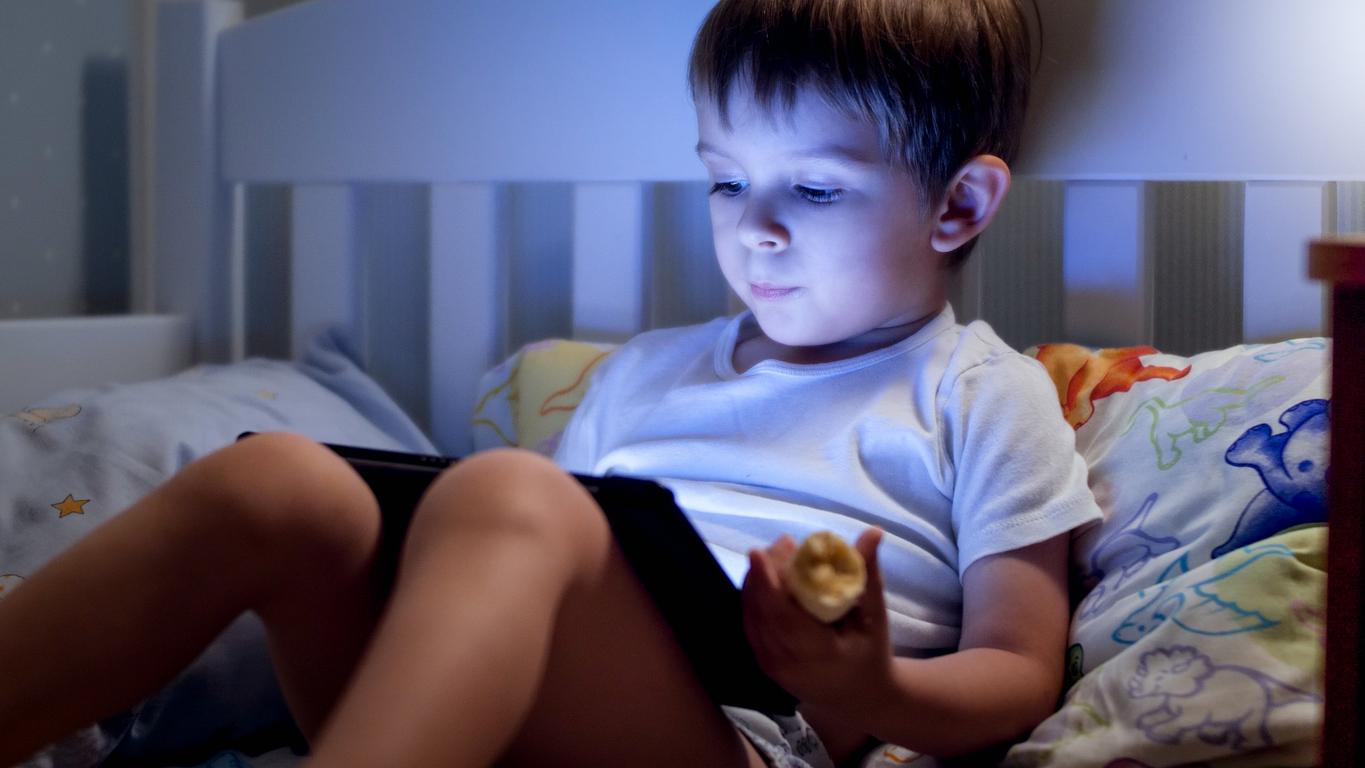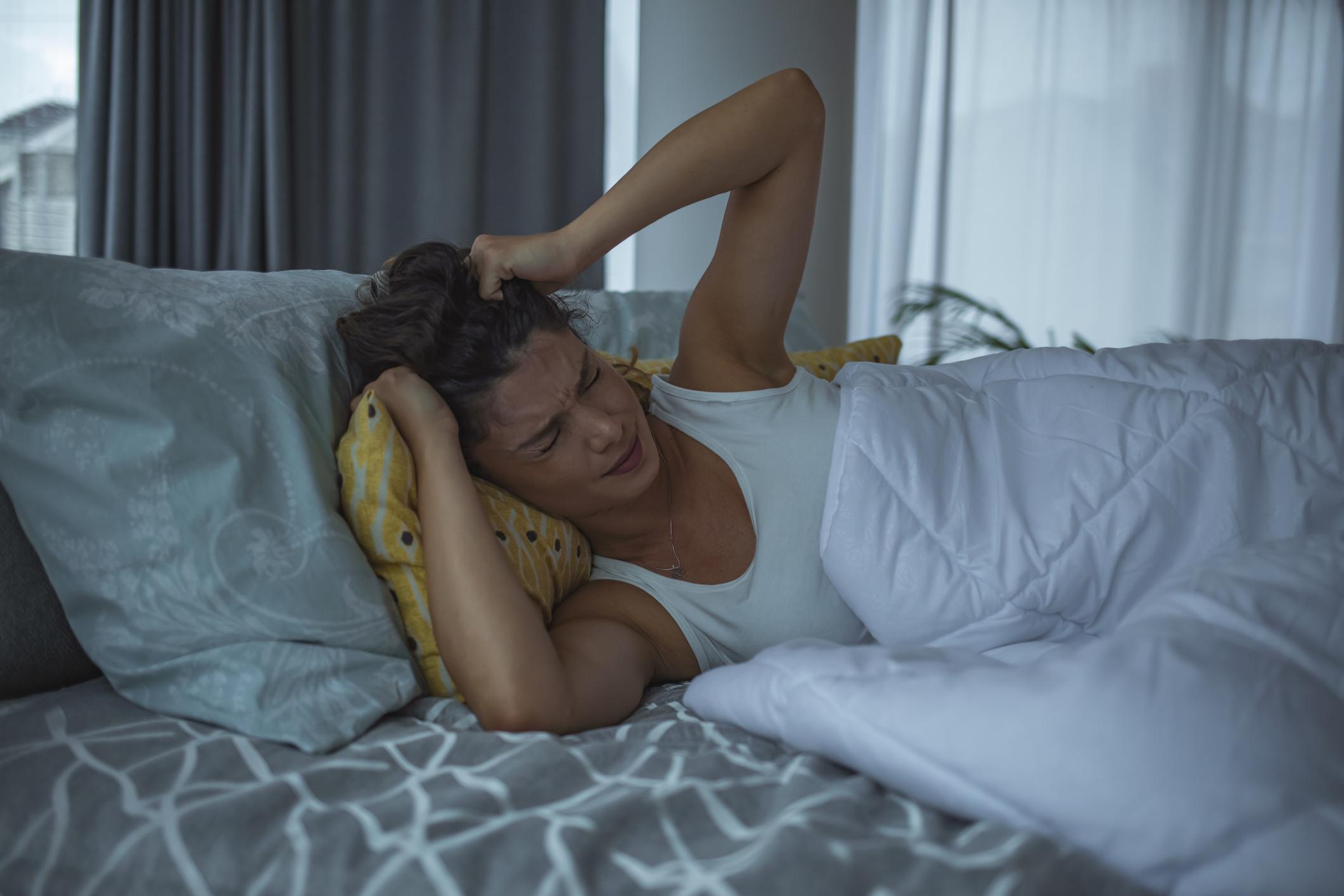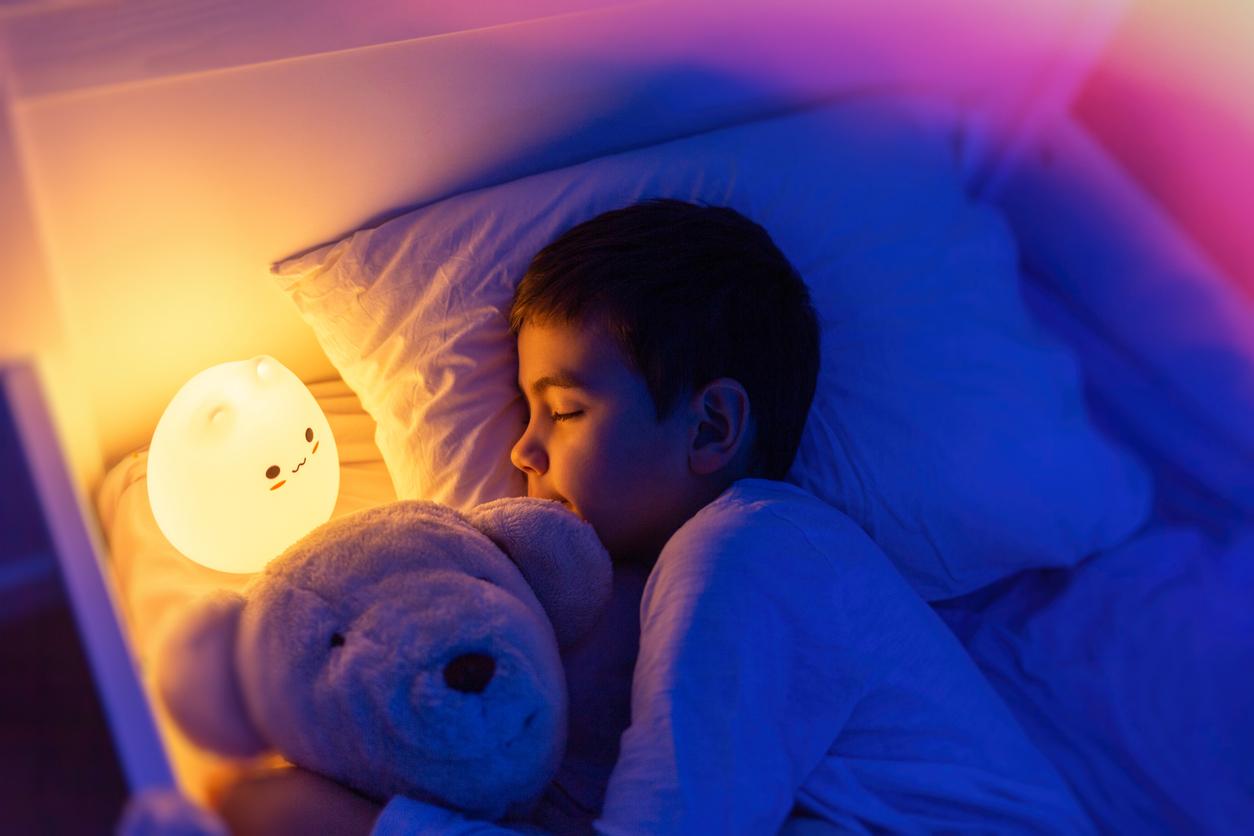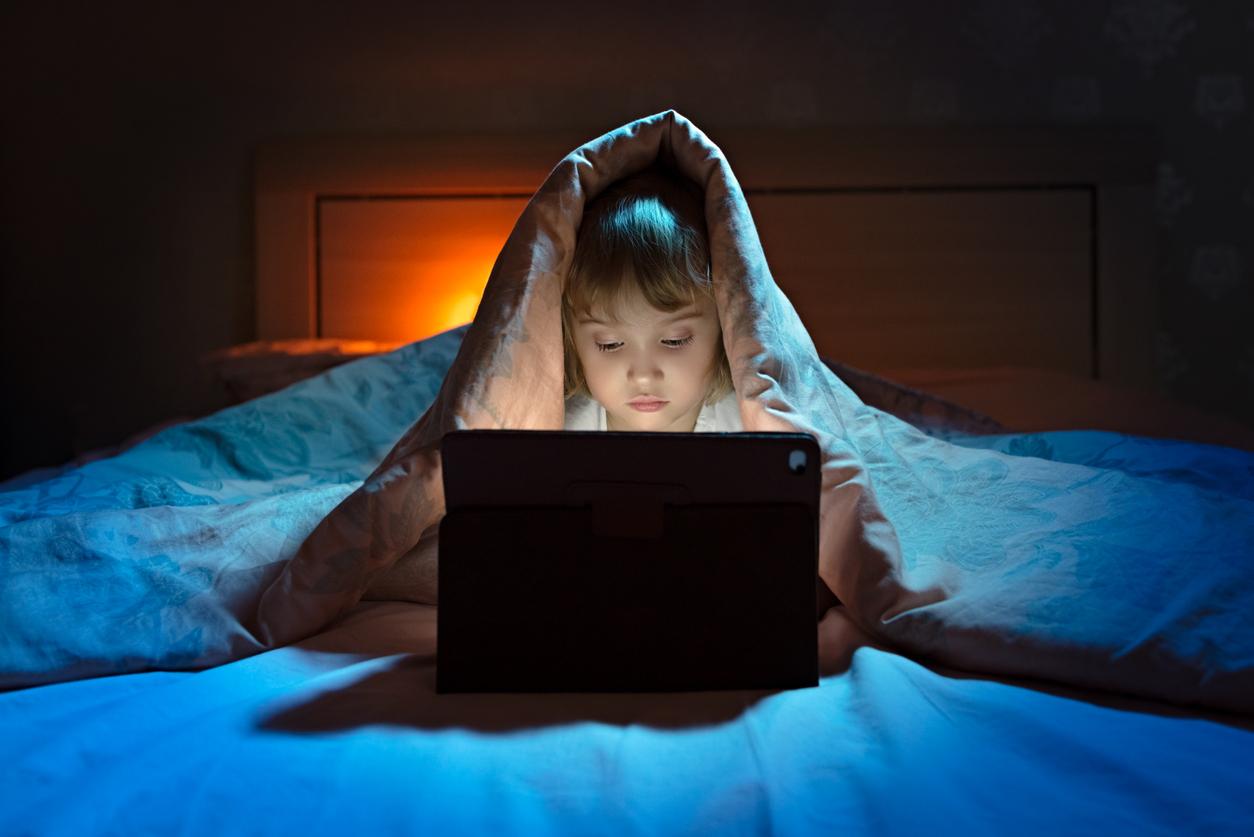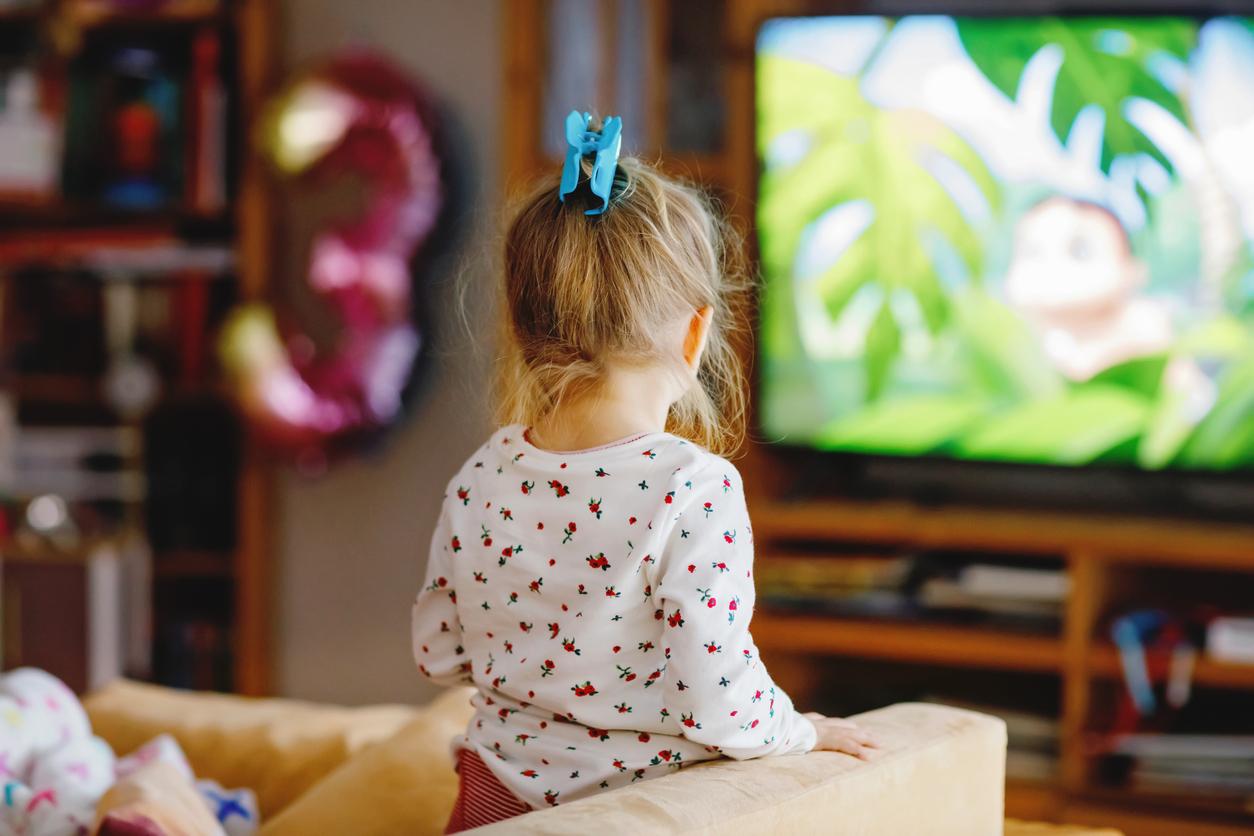To fight against visual fatigue caused by blue light, some people wear glasses that limit the radiation emitted by screens. But are they really effective? Explanations.
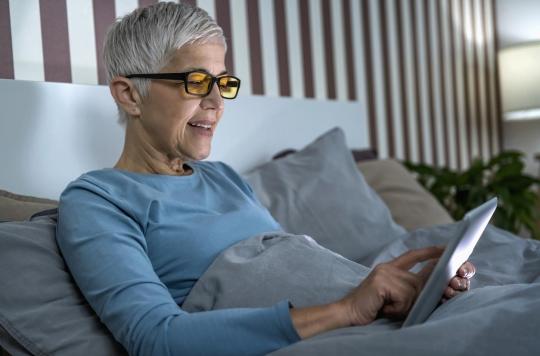
- Up to 69% of computer users report suffering from eyestrain.
- Blue light exposure can affect the retina, the layer of cells that lines the back wall of the eye, which detects light and sends signals to the brain so we can see.
Smartphone, tablet, computer, television… We spend several hours a day in front of screens and we are thus exposed to blue light on a daily basis. Problem: this radiation can cause eyestrain. It is a combination of symptoms, such as blurred vision, dry, irritated eyes, headaches, neck pain, and feeling tired. “At night, exposure to blue light can potentially cause sleep problems by altering your circadian rhythm, which is the body’s internal clock,” said Dr. Gretchen Kelly, optometrist of the Mayo Clinic, an American hospital-university and research federation.
Blue light blocking glasses: “no improvement in visual performance or quality of sleep”
To prevent the harmful effects of blue light, many people use blue light blocking glasses. The latter have special glasses that reduce the rays of the screens. But are these glasses really essential on a daily basis to protect your eyes? “These products reduce the transmission of blue light whose spectrum is between 440 and 500 nanometers”, can we read on the site from the Mayo Clinic.
Studies have been conducted with adults to determine the benefits of blue light blocking lenses and glasses. “The objective was to find out whether these lenses alleviated eye fatigue and discomfort when using digital devices and whether the quality of sleep improved when the lenses were used in the evening. However, the analysis of the works n ‘revealed no significant improvement in visual performance or sleep quality with the use of blue-blocking lenses and glasses’, explained Dr. Gretchen Kelly.
How to reduce visual fatigue?
When we spend too much time in front of a screen, our natural blink rate decreases, which reduces the tear film that coats the eyes and makes them dry. To avoid this phenomenon, it is advisable to take regular breaks, more precisely every 20 minutes, and to stare at an object located a few meters from us for 20 seconds. We must also make sure to reduce our screen time. Another tip: use drops when the eyes are dry. Regular eye exams are also recommended to identify eye problems and determine if the eyes are healthy.








